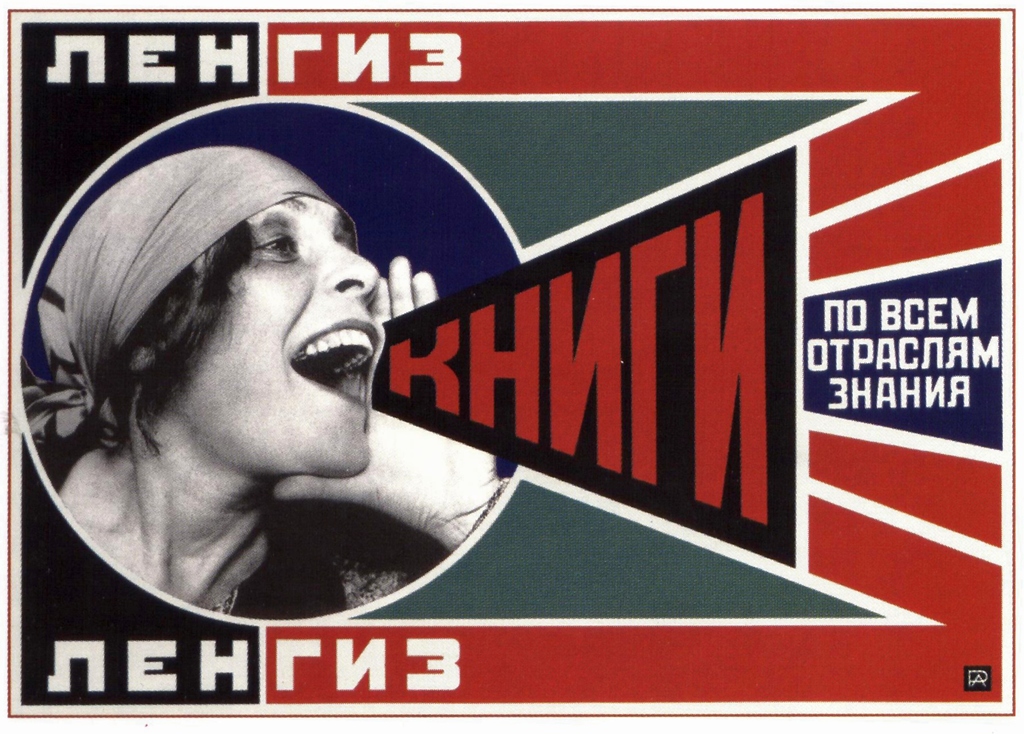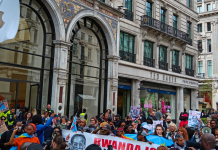
With 2015 near done and dusted, rs21 readers and writers share their favourite books, films and theatre performances. From old classics with renewed relevance to innovative and unorthodox work from contemporary artists, or just good telly: there should be something for everyone. If not, share your own highlights in the comments!
American Crime does what is says on the tin, but not as we know it. The TV series’ dissection of the aftermath of a single violent crime reveals itself along with its protagonists step by step. Two-dimensional characters are rare if not absent due to both the brilliant writing and amazing performances. From the outset we are taken layer by layer to look at the effects on individuals and families as they attempt to navigate the American judicial system, support groups, the mainstream media and their own lives. Big fan of Timothy Hutton and even bigger one after watching this. Tony Aldis, Plumstead
Alan Sears, a Canadian socialist, has written The Next New Left: A History of the Future, a thought-provoking and beautifully written short book on the left’s dilemmas today. A facebook friend put me onto Elena Ferrante’s My Brilliant Friend, the first in a series of ‘Neapolitan novels’. Girls growing up in postwar Naples: not my usual fictional fare, but just wonderful. Colin Barker, Manchester
Kim Noble’s solo production, You’re Not Alone, was my performance of the year. Equally brilliant and disturbing, it is about to reopen at the Soho Theatre for a Christmas run. Noble mixes comedy, theatre, and film to take his audience to deeply uncomfortable and unsettling places, breaking expectations and smashing ethical boundaries to deliver an unexpectedly touching and cathartic show about loneliness, alienation and the desire for human intimacy. It’s not suitable for the feint hearted or squeamish, but the show has stayed with me and, if you can stomach it, I highly recommend catching it while it’s still on. Jaz Blackwell-Pal, South London
One of the best pieces of television (do we still call it that?) this year for me was Master of None, the Netflix series marking the transition of Aziz Ansari from standup comic to sitcom star. Ansari plays Dev, a second generation Indian actor in New York trying to get work. Aside from the familiar sitcom tropes (falling out with his girlfriend, get landed with babysitting), the show also brings up some great comedic commentary on racism in the US. His attempts to find work in films is hampered by his refusal to “speak with an accent” and casters feeling it would be ‘weird’ to have more than one Indian actor in a film. The discussion of white actors playing Indians is both powerful and hilarious (I will never look at Short Circuit in the same way again). For all its faults, Netflix has produced some excellent material this year (my second choice was the Wachowskis’ Sense8, largely for its explorations of gender and sexuality in a kick-ass sci-fi environment). But if you don’t feel like feeding the multinational monster, typing the words “watch Master of None online” into Google might help. Patrick Ward, London/Kathmandu
“Of political parties claiming socialism to be their aim, the Labour Party has always been one of the most dogmatic – not about socialism, but about the parliamentary system. Empirical and flexible about all else, its leaders have always made devotion to that system their fixed point of reference and the conditioning factor of their political behaviour.” The oft-quoted opening lines of Miliband’s classic work Parliamentary Socialism neatly encapsulate the thrust of his critique. While not the most sophisticated book theoretically, it is still one of the best critiques of the ideology of ‘labourism’ around. I picked the book up during Jeremy Corbyn’s election campaign, and was stunned by the frequency with which I read whole passages which could have been written today – literally word-for-word. It helped to crystallise two things in my mind very clearly: first, the extent to which Corbyn’s tendency to embrace extra-parliamentary political agency breaks not only with ‘New Labour’, but with the venerated ‘Old’; and secondly, the need for autonomous radical organisation not bound to his own fate within the party machinery. Duncan Thomas, London
In the UK in 2015, Frantz Fanon is in vogue. Last year, his most famous work, The Wretched of the Earth (1961), was made into the film ‘Concerning Violence’ to document resistance to colonialism past and present. Despite its resurgence in popularity, The Wretched of the Earth has its political faults, particularly in its excessive masculinism and focus on nation-states as the main site of resistance. Nevertheless, read critically, Fanon still provides an invaluable analysis of revolutionary violence and international modes of domination, which becomes ever-more relevant with each new country Britain bombs. Kate Bradley, London
I would say the Argentinian film Wild Tales. This was a very clever, shocking and funny film. It consists of several short stories which contain incredible twists and turns – each story is only about 15 mins but they are all memorable. The stories are at times quite surreal. It goes to show that great story-telling can be done in short films – it just depends on how well they are done. Ian Crosson, Lewisham














From Ben Neal in Moscow.
In 1972 the Ukrainian literary critic, Ivan Dziuba, was jailed by the Soviet authorities for 5 years. His crime? Writing the book “Internationalism or Russification?”. Published in 1968 and addressed to the leadership of the Ukrainian and Soviet Communist Parties, it provided a Marxist analysis of USSR policies towards the non-Russian nationalities, focussing on the situation in Ukraine.
Dziuba’s initial motivation for writing the book was a wave of repression against Ukrainian intellectuals in 1965, and contrasted soviet policies at the time with the initial Bolshevik policies of support for minority nationalities. He argued, from a Marxist perspective, that since the days of Stalin, the attitude of the government, despite official rhetoric, was characterised by Russian chauvinism more akin to that of the tsarist empire than the Marxist internationalism of the revolutionary years. By contrast the Bolshevik government under Lenin’s leadership instituted a programme of affirmative action in order to undermine chauvinist attitudes in the new state.
Dziuba painstakingly recounted the myriad ways that this manifested, from the predominance of Russian language publications over Ukrainian, through the lack of Ukrainian language films, to the general underdevelopment of industry in the Ukrainian SSR compared with the rest of the country. The result is a damning indictment of the Soviet leadership’s long standing abandonment of Leninism.
This book will perhaps appeal more to the specialist reader, and you would certainly benefit from at least a general knowledge of Russian and soviet history before reading it. However it has provided me with inspiration for further study of the subject, and more importantly I recommend it to anyone wishing to understand the current conflict in Ukraine, or who is interested in Marxist theories on the national question in general.
Sadly the book is currently out of print, but it is easily available second hand.
Reblogged this on Bampots Utd.